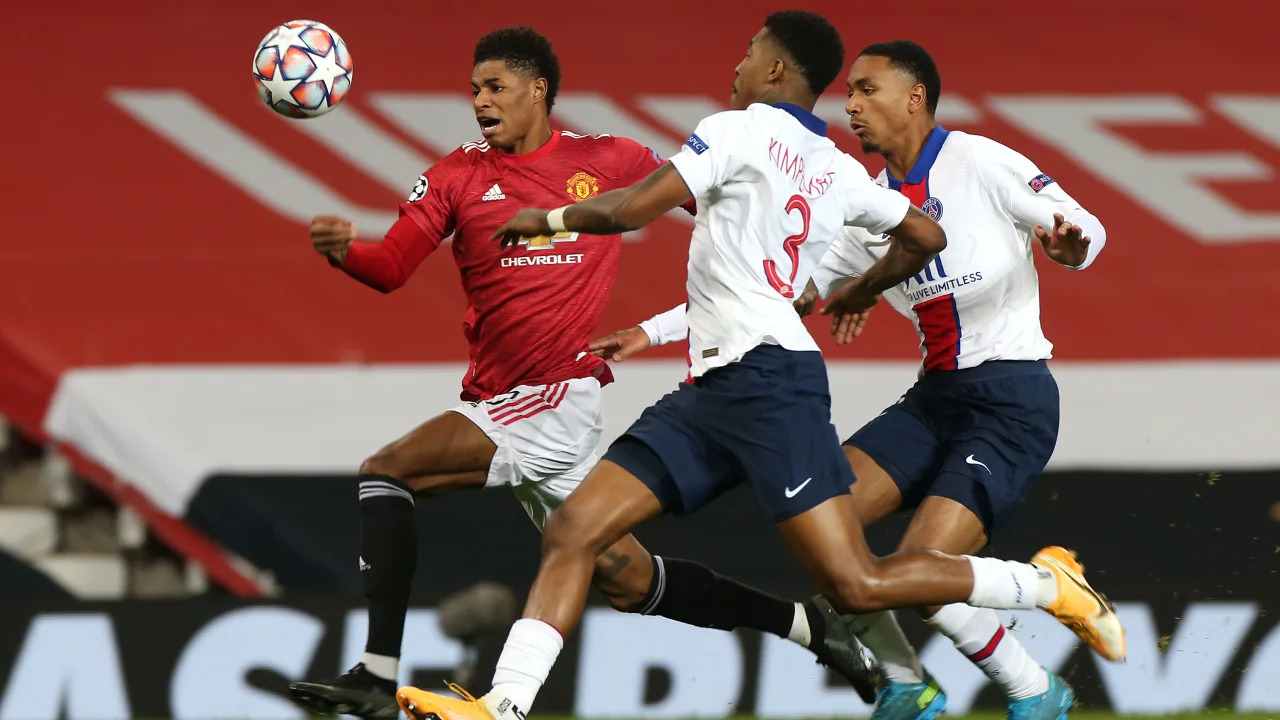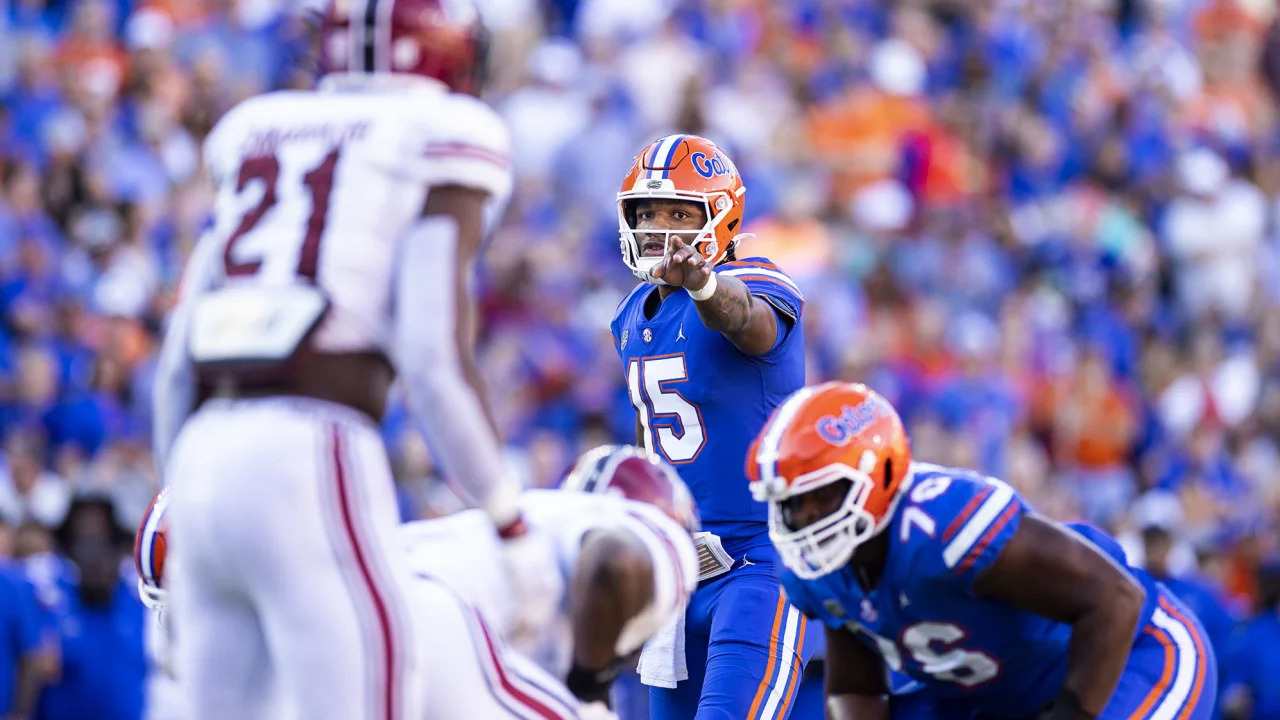The owners of Manchester United are more than simply the custodians of a soccer club.
For, with its long history of accumulating trophies, rebuilding the team after the 1958 Munich air disaster and self-proclaimed 1.1 billion fans worldwide, Manchester United is “arguably Britain’s most valuable sporting, perhaps even cultural, asset,” as Simon Chadwick, professor of sport and geopolitical economy at SKEMA Business School, tells CNN Sport.
It also inflated the share price from $13.03 on November 21 to a 52-week high of $27.34 on February 16, although it began dropping again as reports emerged questioning the club’s true value.
So, what will happen to the world-famous club in the coming weeks, why is its potential sale so important, and could the Glazers, after all this, remain its owners?
Who is in the running?
Despite all the rumors circulating, there are currently only two confirmed bidders for the club: British billionaire Jim Ratcliffe and Qatari Sheikh Jassim Bin Hamad Al Thani.
Parties from Saudi Arabia have also reportedly entered the race to own the club, while the US-based hedge funds Elliott Investment Management and Ares Management Corp have submitted their own proposals to offer financing for a bid, the Telegraph and Reuters reported respectively.
And the Glazers themselves, deeply unpopular with United fans since their leveraged buyout of the club saddled it with a net debt of $626 million according to the club’s latest accounts, remain in control of the whole process.
For years, fans have protested against the Glazer family, staging marches on Old Trafford, and plastering “Love United, Hate Glazer” on banners at home and away matches.
Another fan, Ed Barker who hosts the podcast “No Question about That,” describes the Glazer ownership as a “disaster for the club.”
Manchester United did not comment on the Glazers’ ownership and directed CNN to its November statement announcing the club’s “strategic review” and potential sale.
The chairman of a Qatari bank
Sheikh Jassim, the chairman of Qatar Islamic Bank (QIB), officially made a bid for “100% of” Manchester United on February 17, seeking to “return the club to its former glories,” his statement read.
Sheikh Jassim is the son of Qatar’s former Prime Minister Sheikh Hamad bin Jassim bin Jaber Al Thani, and, reportedly, is a lifelong Manchester United fan.
His bid, soccer finance expert Kieran Maguire tells CNN Sport, would “effectively … take the club private again,” eliminating all the debt, and buying out “not just the Glazer family, but everybody else that owns shares in Manchester United as well.”
CNN reached out to the club and the Raine Group for comment but did not immediately hear back.
Why a Qatari owner would be controversial
Several fan groups, as well as the human rights organization FairSquare, have raised concerns about Sheikh Jassim’s bid.
As a member of the Qatari royal family, Sheikh Jassim’s ties to the country’s government have been scrutinized since he announced his bid.
The way Chadwick would characterize Sheikh Jassim is that he’s “far away enough to not be considered part of the state apparatus but still close because there are only 3,000 royal family members in Qatar and he will have a position in the hierarchy.”
Sheikh Jassim’s ties with, or independence from, the Qatari state have major implications for his bid – both in terms of his association with the government’s much maligned human rights record and the fair play regulations of the Union of European Football Associations, the sport’s governing body in Europe.
“To ensure the integrity” of UEFA competitions, including the Champions League, UEFA rules stipulate that no “individual or legal entity may have control or influence over more than one club” participating in the competition.
Paris Saint-Germain, which regularly competes in the Champions League alongside United, is owned by Qatar Sports Investment (QSi), the country’s sovereign wealth fund.
As of March 2022, the Qatar Holding LLC, the investment arm of Qatar Investment Authority (QIA) was the single largest shareholder of QIB, owning 16.7% of the bank, while Nasser Al-Khelaifi, president of PSG, is a board member at QIA.
Qatar’s human rights record, particularly its stance towards migrant workers and LGBTQ+ rights, was criticized from the time it was awarded last year’s World Cup.
Same-sex relations are illegal in Qatar and punishable by up to seven years in prison. A report from Human Rights Watch, published in October 2022, documented cases as recently as last September of Qatari security forces arbitrarily arresting LGBTQ+ people and subjecting them to “ill-treatment in detention.”
“I think there’s almost entirely negative aspects to a state bid,” Barker told CNN Sport, while stressing that his perspective isn’t representative of every fan.
“I don’t think that’s good for football and I don’t think for United.”
The Rainbow Devils, Manchester United’s official LGBTQ+ Supporters Club, tweeted on February 17 that it had “deep concern over some of the bids that are being made,” and believed “any bidder seeking to buy Manchester United must commit to making football a sport for everyone, including LGBTQ+ supporters, players and staff.”
The British billionaire from Manchester
Born near the city and a self-declared Manchester United fan, Jim Ratcliffe first expressed interest in buying the club back in August, before it was even for sale.
He confirmed that he and his company had submitted a bid “for majority ownership” in a statement sent to CNN on February 18.
“We would see our role as the long-term custodians of Manchester United,” the statement read, emphasizing the bid’s “modern, progressive, fan-centred approach.”
Ratcliffe’s bid for “majority ownership” would buy out the Glazers and, Maguire predicts, require borrowing money to acquire the club.
Ratcliffe is a majority shareholder of chemical group INEOS which already owns the French soccer club Nice, Swiss club Lausanne-Sport, the Ineos Grenadiers cycling team and is a principal partner of the Mercedes F1 team.
His bid is also not without controversy for, like Sheikh Jassim’s bid, it raises questions about the principle of multi-club ownership, given that his company already owns two soccer teams, although they play in different domestic leagues than United and are less likely than PSG to qualify for the Champions League.
British INEOS Group chairman Jim Ratcliffe poses upon his arrival for the 73rd edition of the Red Cross Gala at the Casino in Monte Carlo on July 18, 2022. (Photo by Valery HACHE / AFP) (Photo by VALERY HACHE/AFP via Getty Images)
Jim Ratcliffe’s INEOS enters bidding process to buy Manchester United — The Times reports
Meanwhile, a Greenpeace UK spokesperson told CNN, “It’s worrying that the Man Utd bidding process has turned into a dirty derby between entities linked to fossil fuels,” referencing Ineos’ production of “plastic, chemicals and fossil fuels,” as well as the QIB’s revenues from oil and gas.
“Kicked out of museums and art galleries, oil and gas is now invading the world of sport desperately looking for popular brands behind which to hide its climate-wrecking business,” the spokesperson added. “Whichever way this derby goes, the winner won’t be the climate.”
When asked for comment, Ineos directed CNN towards its multi-billion dollar investments in carbon capture, carbon storage and green hydrogen, as well as its plans to achieve net-zero emissions by 2050.
“That matters to a probably a small group of fans, but some who are informed about what the company is,” Barker says.
Saudi Arabia connection
As well as these two confirmed bids, there are other parties rumored to be interested in buying the club.
The US-based hedge fund Elliott Investment Management is planning to offer financing for a bid to take over the club, though it has ruled itself out of a full takeover, Reuters reported citing sources close to the matter.
Elliott Investment Management declined to comment when contacted by CNN.
Meanwhile, Ares Management Corp – who pursue investment activities in leveraged loans, private debts and other types of investments – also offered funds to support a takeover, according to Reuters citing three sources familiar with the matter. It added that one bidder turned down Ares’ funding because the terms were unattractive.
Ares declined to comment when contacted by CNN.
Multiple private groups in Saudi Arabia also submitted their own bids for Manchester United, the Telegraph reported last month.



